Contacts if you are an LGBTI person fleeing Ukraine
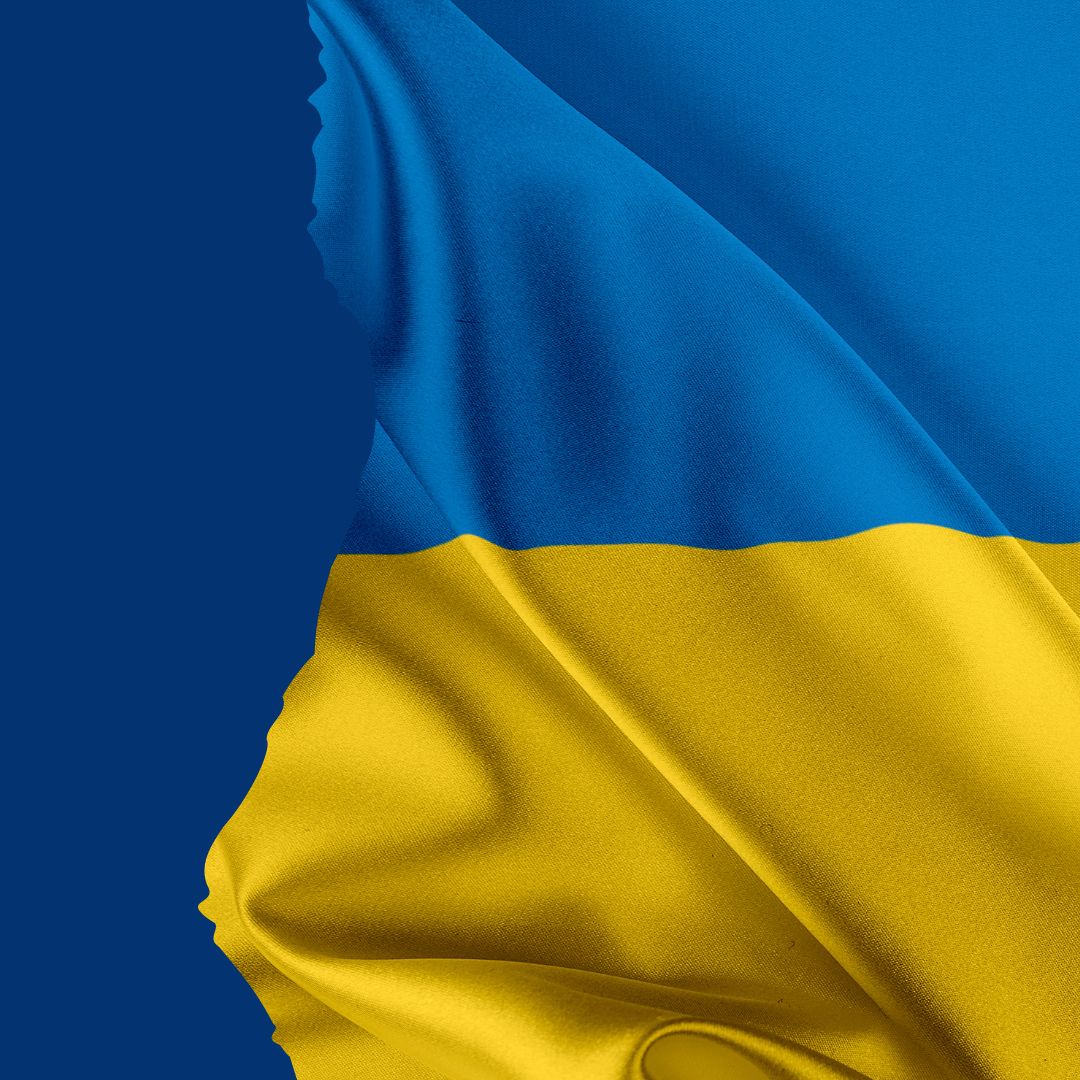
If you are LGBTI who fled the war and need help, this is who you can contact
Belgium:
Rainbow House Brussels: http://rainbowhouse.be/en/about-us/
Czechia:
Email hotline: help@praguepride.com
Czech AIDS Help Society: https://www.aidsmap.com/about-hiv/hiv-treatment-and-health-care-refugees-ukraine
Estonia:
Estonian LGBT Association: info@lgbt.ee / https://www.lgbt.ee/ukraine-en
France:
Ardhis https://ardhis.org/etre-aide-par-lardhis/ (contact@ardhis.org)
Germany:
Guidance and help by cities:
Berlin: There is a LGBTIQ stand at Berlin Hauptbahnhof, that can be approached for any guidance
WostoQ-Regenbogen is supporting those arriving: wostoq.regenbogen@gmail.com
Munich: https://munichkyivqueer.org/home/
Hamburg: https://queer-refugees-support.de/.
https://www.queer-refugees.hamburg/index.php/gruppen
Across the country:
Quarteera is a Russian-speaking LGBTIQ group: http://www.quarteera.de/. They can be reached out at help@quarteera.de with any request (housing, figuring out registration, health insurance etc.)
Queere: https://www.queere-nothilfe-ukraine.de/ and https://www.facebook.com/qnukraine
Overview over the legal situation and offers for support across Germany:
Schwulenberatung provides basic information for trans and intersex people in Russian: https://schwulenberatungberlin.de/angebote/queer-refugees/
Deutsche Aidshilfe, information about access to healthcare for refugees from the war, in Ukrainian, Russian and German: https://www.aidshilfe.de/ukrayina-dopomoga-bizhencyam
Peer counselling for sex workers fleeing the war
https://www.instagram.com/transsexworks/
https://www.instagram.com/p/CbYPtAaMBlV/?utm_medium=copy_link
Hungary:
Budapest Pride email hotline: help@budapestpride.hu or contact via signal: +36304396083
Háttér Society: hotline@hatter.hu More info: https://en.hatter.hu/news/how-we-help-ukrainian-refugees
Italy:
Torino: To-Housing (Associazione Quore): segreteria@quore.org
MIT Bologna sportello.sarahhegazi@mit-italia.it Tele: 3892642210 e 366 424 4994
Arcigay: ufficio@arcigay.it / +390510957241
Arcigay Modena – migra@arcigay.it / 3386040057
Arcigay Trieste Gorizia: migranti@arcigaytrieste.it / 3494130688
PolanD:
https://ukraina.paradarownosci.eu/
Romania:
Accept Help line dedicated to Ukrainian refugees: +40 770 613 630 (also Whatsapp and Telegram)
MozaiQ LGBT hotline: +40 764 109 385 / office@mozaiqlgbt.ro
Slovakia:
Helpline run by Košice Pride and Prizma: help@pridekosice.sk.
More info: https://www.pridekosice.sk/pomoc-pre-lgbt-utecencov-a-utecenky-z-ukrajiny/
Slovenia:
Legebitra https://legebitra.si/en/, contact Eva Gra?anin: eva.gracanin@legebitra.si
Spain:
Castelló: Castelló LGBTI: https://castellolgtbi.es/ / +34696831307 / ucrania@castellolgtbi.es
Zaragoza: Somos LGTB+ Aragón: https://somoslgtb.com/01somos/01contacto/
Valencia: Lambda Valencia: https://lambdavalencia.org/
UK:
Micro Rainbow at info@microrainbow.org
Trans Day of Visibility 2022: Here’s what you absolutely should know about trans communities from Ukraine
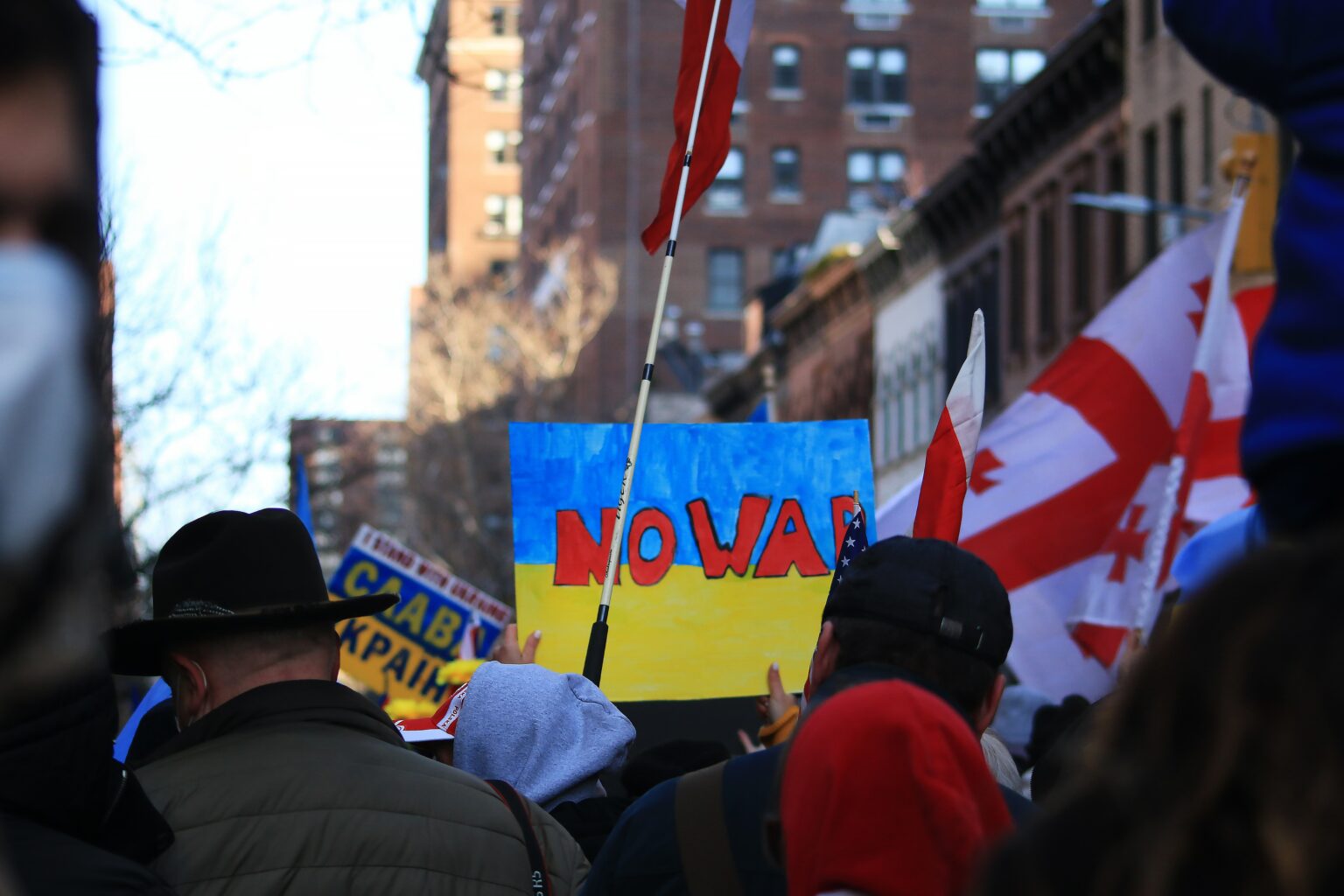
It’s March 31, Trans Day of Visibility. To mark this day, at ILGA-Europe we want to commend the amazing work trans-led organisations are doing as the war in Ukraine continues, and tell you about the current needs of trans communities staying or leaving the country.
After over a month of war, Putin’s invasion of Ukraine has devastated several cities and caused the displacement of almost four million people and counting. Trans people are among those affected: there are trans women who have tried to leave but couldn’t due to the male gender marker in their passports, and trans people who want to stay but are at risk of violence in regular shelters, and all are exposed to potential shortages or difficulties in accessing medicines and hormones on both sides of the border.
Trans-led groups and organisations are responding to the humanitarian crisis by doing an incredible job to support trans people in Ukraine and neighbouring countries. Here are some of the current needs of trans people from Ukraine and how trans-led organisations are responding:
Trans people staying in Ukraine or leaving — what are their needs?
- Many trans people in Ukraine do not have identification documents with gender markers matching their gender identity. So trans women often still have a male gender marker. In this situation, many of those who have tried to flee have been refused to pass internal check-points and to leave the country as due to their identity documents, they fall under the martial law and military mobilisation of men between 18–60. Trans women need a pathway to be able to leave the country along with other women, including those who have a male gender marker in their documents.
- Trans people and other LGBTI communities who are staying in Ukraine because they want to, or because they cannot leave, are at risk of discrimination and violence in regular shelters. The few existing LGBTI shelters have very little capacity.
- Necessary hormones and medicines for trans and intersex people, as well as HIV/AIDS medication are, like other supplies, running out in Ukraine. Humanitarian aid packages generally do not include these medicines, and trans, intersex, and LGBTI civil society groups in neighbouring countries are working hard to fill this gap in the short-term. It is imperative that medicines are available for trans communities in Ukraine and for refugees in arrival countries.
- When trans refugees arrive in neighbouring and other reception countries, many may experience delays and inconsistencies in access to healthcare, which could lead to an interruption in their care. This can be potentially devastating. Governments in reception countries must enable access to healthcare for refugees and ensure that trans and intersex people already taking medicines can continue care without interruption.
Many trans-led organisations are doing amazing work to help and support their community members from Ukraine. Have a look:
In Europe, TGEU is monitoring the situation, providing frequent updates and resources, as well as how best to provide support, guidance for trans people from Ukraine, and visuals for social media channels, here.
In Ukraine and Slovakia, Trans*Generation is providing legal consultation and connections to trans people who want to cross the border, as well as information about visas abroad, hormones and medication and financial assistance to trans people staying and leaving Ukraine. Find out more here.
In Hungary, Transvanilla is supporting trans refugees crossing the border by providing transport, accomodation, translation and accompaniment in administrative procedures. Learn more about Transvanilla here.
In Poland, intersex organisation Fundacja Interakcja is supporting trans and intersex refugees. Learn more here.
‘#UkraineLGBTI: Information, Action, Direction
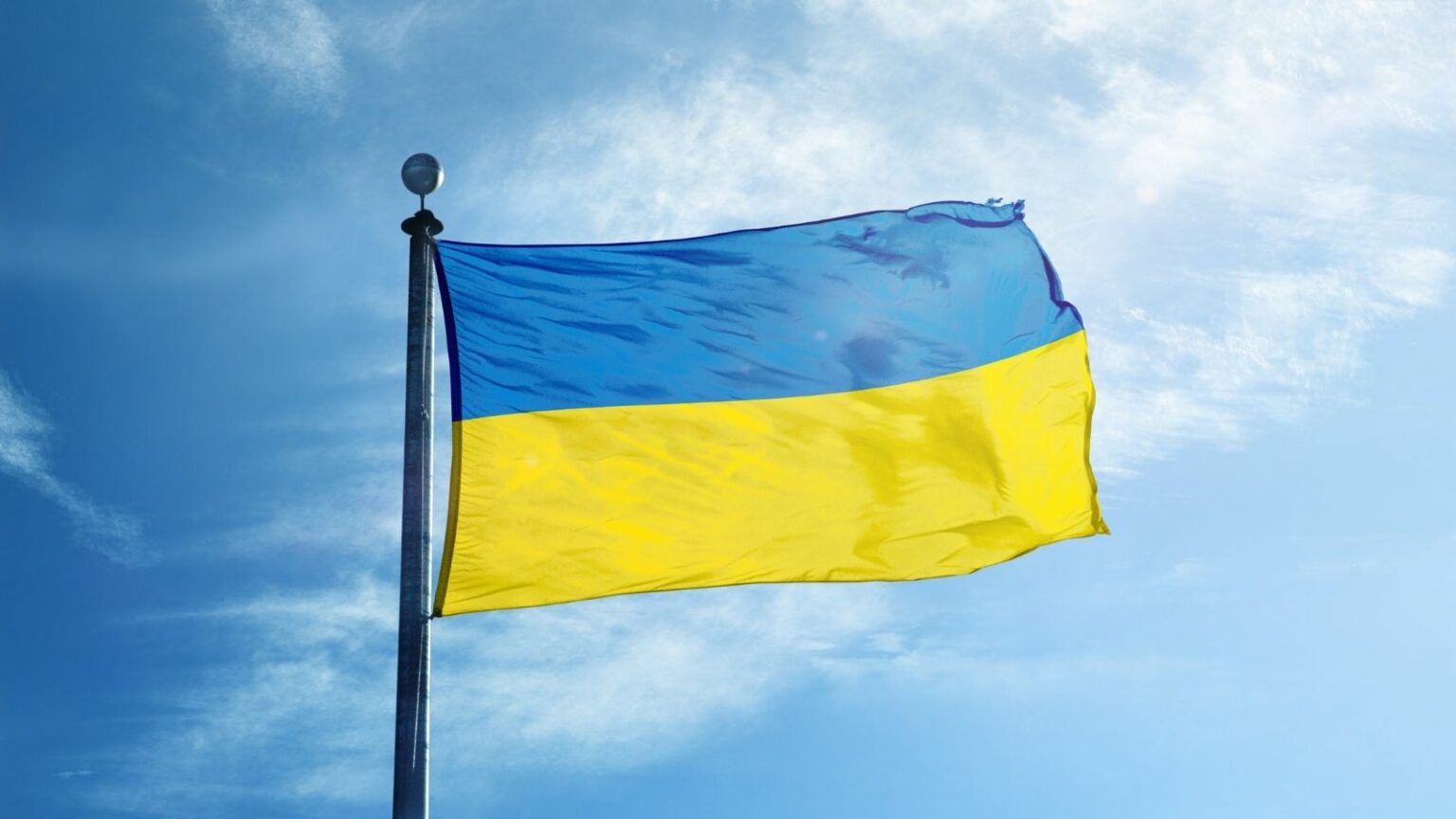
It’s been more than a month since Putin invaded Ukraine. At ILGA-Europe we are identifying the multiple and multi-layered needs across the region prompted by the war within the LGBTI communities in Ukraine, Russia and neighbouring countries like Poland, Romania, Belarus, Moldova or Hungary.
Who needs what?
There are LGBTI people, communities and groups in Ukraine who’ve chosen to stay or who cannot leave in need of safe shelters and access to medications. With over 3.8 million refugees and counting, LGBTI people who’ve left the country also need safe spaces and people who support them, as hosting countries often lack infrastructure. Finally, there are also complex needs of those who are in Russia, or who’ve left Russia.
The mobilisation of LGBTI groups
“The light in all this is seeing how people are rallying to be there for each other,” says Evelyne Paradis, our Executive Director, in the latest episode of our podcast, The Frontline.
At the moment, there is an extraordinary mobilisation of the LGBTI movement. Starting with activists and groups who’ve chosen to stay in Ukraine and be there for their communities, to those in Poland, Hungary, Czechia, Moldova and more, who have been under a lot of pressure in recent years in their own countries, and who since the beginning of the war have been getting ready for the LGBTI refugees who will keep arriving.
Listen to our podcast episode on the situation in Ukraine:
Information, Action, Direction
ILGA-Europe has developed a three-part package to support LGBTI people who are and will be affected by the war. Efforts to help are complex and will become more so as time goes on, thus we will keep adapting our work to reflect the developing situation for LGBTI people. Our central working principle in the short, medium and longer term, is to connect and mobilise people, institutions and resources to strengthen and reinforce the work happening on the ground. We are working to make it as effective as possible on three core levels:
INFORMATION: Providing information about what is currently happening for LGBTI people, both staying in Ukraine and Russia, or who are leaving or have left, and what their needs are.
ACTION: Identifying key actions to do our part to ensure the protection and support of LGBTI people and communities affected by the war.
DIRECTION: Providing guidance and direction to everyone in our membership, the LGBTI wider movement, our allies and beyond who want to play their part in supporting all LGBTI people affected by the war.
Five easy things humanitarian aid actors should do to ensure LGBTI refugees of war are not left behind

The ongoing war in Ukraine has resulted in the need for immediate action to address the needs both of a significant population of Ukrainians fleeing the armed conflict, as well as for those who are staying in Ukraine. LGBTI people are often amongst vulnerable groups in crisis situations and specific attention is needed to ensure that they are safe, have safe
refuge and that some fundamental basic needs are being met – ensuring they are not left behind.
The frontline: LGBTI People and the War in Ukraine
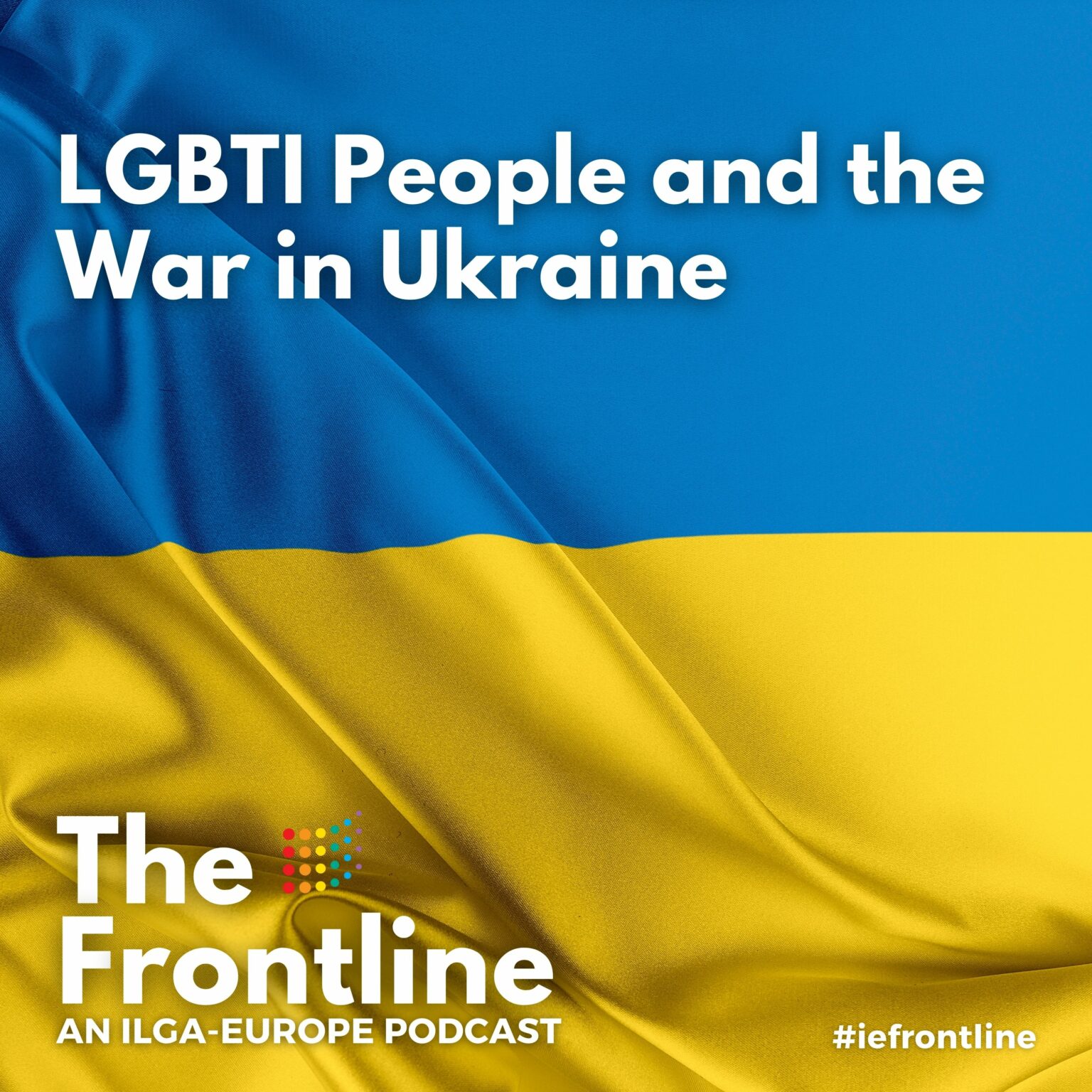
At ILGA-Europe we recognise that the war is not going to be a short-term situation for vulnerable people in Ukraine, Russia, neighbouring countries, and all countries in Europe and Central Asia that are and will be hosting displaced people. With our deep and nuanced knowledge of the human rights situation for LGBTI people across Europe and Central Asia, we know that there will be great complexity and particular vulnerabilities in the experience of LGBTI refugees, and of those LGBTI people who are either forced, or choose to remain in Ukraine and Russia.
In this episode we’re talking about how we at ILGA-Europe are responding to the war in Ukraine, and in particular the effects on LGBTI people, both in Ukraine and Russia, in neighbouring countries, and all host countries across Europe and Central Asia. With us to talk about the current situation, from ILGA-Europe’s perspective, combined with what we know from our member organisations in Ukraine, Russia and across the region, is our Executive Director, Evelyne Paradis.
Listen below or click here to listen and subscribe to The Frontline on your favourite podcast platform.
Briefing Document: Ukraine war – LGBTI People in the context of armed conflict and mass displacement

The ongoing war in Ukraine has resulted in need for immediate action to address the needs both of a significant population of Ukrainians fleeing the armed conflict as well as for those who are staying in Ukraine.
LGBTI people are often amongst vulnerable groups in crisis situations and specific attention is needed to ensure that they have the same opportunities and support as other forcibly displaced persons, to exercise the full range of their human rights without discrimination, including access to asylum procedures and humanitarian programmes.
The purpose of this briefing is to describe specific needs of LGBTI people, who remain in Ukraine and who are on the move and LGBTI human rights defenders and organisations.
A Marathon, not a sprint: how we’re responding to the invasion of Ukraine
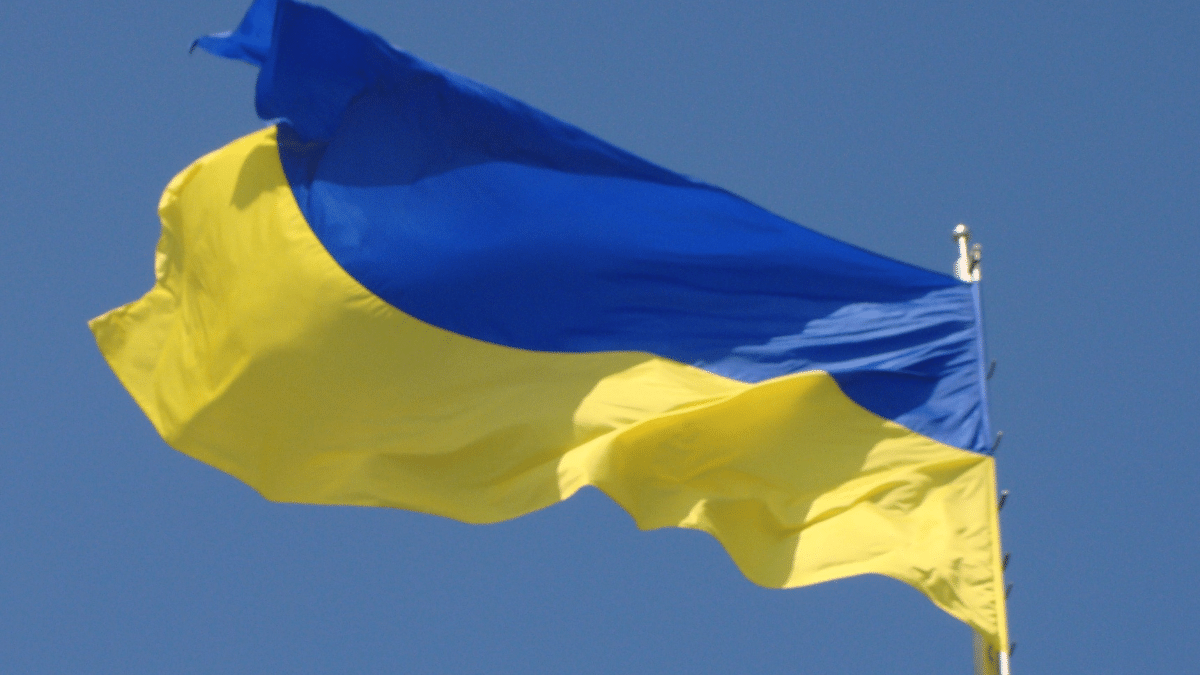
In the past week, since Russia invaded Ukraine on February 24, the global response has been massive, alongside a great number of organisations working with LGBTI communities in the country, and in countries where refugees are landing.
At ILGA-Europe, we’re working to immediately help vulnerable people, but we’re looking towards the long-run too.
As the war in Ukraine has become the focal point of the world, there is a rush to help people and organisations in the country, and rightly so. As many staying in Ukraine seek safety and survival support, while a million and counting continue to cross borders into neighbouring countries and chances for people to leave become slimmer by the day, an immediate humanitarian response is absolutely necessary
At ILGA-Europe we have been working in this respect, helping people on the ground as best we can through our connections with LGBTI organisations, but we recognise that this is not going to be a short-term situation for vulnerable people in Ukraine, Russia and neighbouring countries.
We recognise that this is a marathon, not a sprint, and that efforts across the board to help are complex and will become more so as time goes on. With that in mind, here are the elements of our work, which began in the days leading up to February 24, and are continuing.
Funding
We have shifted a major proportion of our re-granting funds to give emergency help to LGBTI organisations on the ground in Ukraine to help people in the country find safety, food and shelter. We are also shifting funds to LGBTI organisations in neighbouring countries to help get LGBTI refugees into proper living conditions and help them acclimatise.
Working with other funders
We are coordinating with other organisations who are doing fundraising, as well as with our funders to join them up with the right organisations in Ukraine and neighbouring countries, where the funds they raise can do most good.
Directing individual fundraising to the organisations that urgently need it
We are building a list of organisations in Ukraine and neighbouring countries working directly with LGBTI people and communities, which can be found here. This is a growing list, and the information is as accurate as possible.
Connecting those who are mobilising
We have set up various communication channels to connect those who are helping people get into safety and ensure quick coordination around emerging needs.
Working with our member organisations in Ukraine, Belarus and Russia
Although it is difficult to have day-to-day contact with LGBTI organisations in Ukraine, we are doing our utmost to keep the flow of contact with them going, so that we can work to support them in whatever way we can, based on their needs. We are in day-to-day contact with our member organisations in Russia and Belarus, where repression to civil society has intensified, to support them in whatever way we can, based on their needs.
Advocacy on Medical Provisions
Currently one of the paramount issues is making medications available for trans, intersex and people living with HIV. We are assessing needs and working to target the World Health Organisation, governments and the pharmaceutical industries, advocating on behalf of those in need.
Advocacy for Refugees
We are providing information about EU regulations adopted on temporary residency for refugees now, and using our channels with EU institutions and agencies, as well as with national governments to see how we can make sure that all refugees are respected at borders, including BPOC, people with non-Ukrainian passports and trans people.
Together with Transgender Europe (TGEU), we are raising awareness about the specific vulnerable situation for trans women in Ukraine who do not have a female gender marker on their passport. Many are trying to leave the country but cannot, due to the general mobilisation. We are seeing how we ensure support of such cases and raise awareness of this situation of extreme vulnerability.
We have our communications channels open non-stop for LGBTI organisations who need help, or wish to help. In the meantime, we recognise that while much of our immediate work has turned towards the war in Ukraine, we are figuring out ways to continue to be responsive to increasingly complex, and daily changing circumstances, while continuing to give our attention to other crucial elements of our work for LGBTI people across Europe and Central Asia.
Support for LGBTI People in Ukraine

As is the world, at ILGA-Europe we are continually assessing the rapidly developing situation in Ukraine and the region, and in particular for LGBTI people.
We are in contact with activists and other organisations working to support LGBTI communities in Ukraine and those fleeing, to better understand the needs and see what kind of support may be helpful. The situation on the ground is changing rapidly, and we will provide information on how best to support when appropriate.
We are also in touch with activists in Russia and Belarus. As we all know, many people in Russia and Belarus are mobilising in protest against the Russian invasion. It is vital that in this time particularly, we continue to support those working for human rights in democracy in Belarus and Russia, and so ILGA-Europe continues to do this simultaneously.
We are in groups where information is exchanged and will be taking part in calls with groups of Ukrainian activists in the coming days. We will provide updated information on our website regularly.
Assessing needs
LGBTI groups in Ukraine are playing a critical role in trying to support their communities. Current needs are around shelter, access to food and medication and psychological support, and often relocation to safer places.
How you can directly support
For now, we feel it is most appropriate to direct donations to groups in Ukraine who are receiving funds. We encourage people to support initiatives that are already in place and doing the work.
If you have any problems getting funding through to these organisaations, please contact us to let us know.
IN UKRAINE:
Kyiv Pride
Providing humanitarian support to LGBTI people in Kyiv, donate here.
Sphere Women’s Association
Women’s group working on humanitarian aid.
EUR:
| Name of your bank: | JSC CB “PRIVATBANK” |
| City and country where bank is located: | KYIV, UKRAINE |
| Name of the account holder: | NGO Kharkiv Women Association “Sphere” |
| Account number: | UA283515330000026006052214124 |
| Bank/routing/SWIFT code: | PBANUA2X |
| Name of Intermediary/Correspondent bank: | Commerzbank AG |
| City and country where Intermediary bank is located: | Frankfurt am Main, Germany |
| Bank/routing/SWIFT code for intermediary bank: | COBADEFF |
USD:
| Name of your bank: | JSC CB “PRIVATBANK” |
| City and country where bank is located: | 1D HRUSHEVSKOHO STR., KYIV, UKRAINE |
| Name of the account holder: | NGO Kharkiv Women Association “Sphere” |
| Account number: | UA413515330000026003052251919 |
| Bank/routing/SWIFT code: | PBANUA2X |
| Name of Intermediary/Correspondent bank: | JP Morgan Chase Bank |
| City and country where Intermediary bank is located: | New York, USA |
| Bank/routing/SWIFT code for intermediary bank: | CHASUS33 |
LGBTI Human Rights Nash Mir Centre
The Centre urgently needs funds to continue working with LGBTI people who cannot leave Kyiv, you can donate here.
Insight LGBTQ
Helping with temporary housing, relocation to safer areas, food, medicine and first-needed supplies, donate at this link.
NGO Fulcrum
Supporting relocation, shelter, emergency aid to LGBTI persons, donate at this link.
Gender Z
Based in Zaporizhzhia, Gender Z are inviting donations to help them support community members who have not left and need emergency assistance, such as shelter, basic needs support etc. Donate at this link.
Alliance Global
Funding a shelter in Kyiv for MSM and trans* people who are unable to leave the city and are in difficulty. Have almost run out of funds. You can donate by bank transfer here:
| Name of bank: | JSC CB “PRIVATBANK” |
| City and country where bank is located: | KYIV, UKRAINE |
| Name of the account holder: | Dobroskok Oksana |
| IBAN Number: | UA613052990000026207880807940 |
| Bank/routing/SWIFT code: | PBANUA2X |
| Name of Intermediary/Correspondent bank: | JP Morgan AG |
| City and country where Intermediary bank is located: | Frankfurt am Main, Germany |
| Bank/routing/SWIFT code for intermediary bank: | CHASDEFX |
ZBOKU
Basen in Kyiv, ZBOKU is an art initiative that is creating sexual and gender dissent art in Ukraine and needs funds to continue paying for their space that became a bomb shelter and continue their work on making and protecting art. Donate at this link.
This list will be updated as new direct support initiatives are created.
Enlargement Reviews – ILGA-Europe’s submissions to Progress Reports of the European Commission
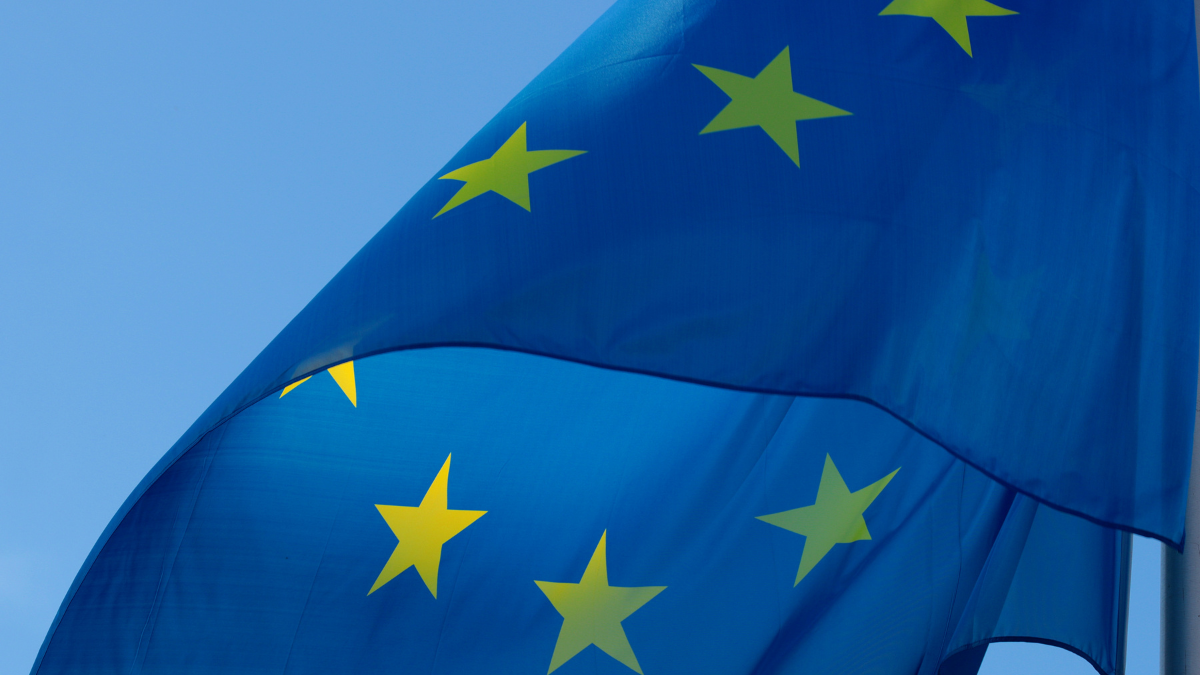
ILGA-Europe has in partnership with national organisations provided the European Commission with detailed documentation on human rights violations against LGBTI people in all candidate and potential candidate countries throughout the year which is included in the submissions to the Progress Reports.
2023
2021
2020
2019
2018
2017
2016
Rainbow Family Rights in Europe – Part 4: At a Crossroads in Ukraine
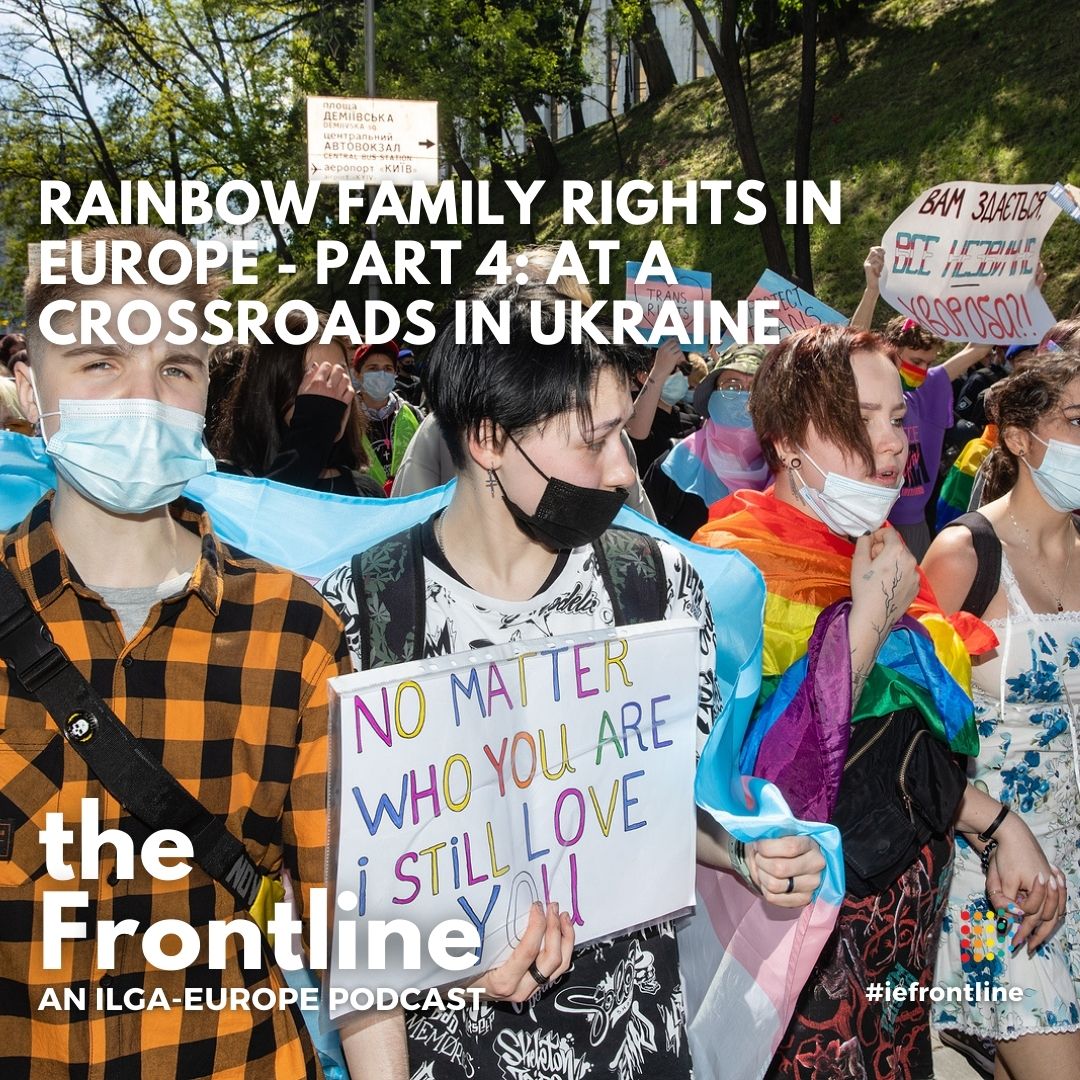
Several pathways for partnership rights were part of the Ukraine took in EU-Ukraine Association agreement 2014-2016.
Based on it the Ukrainian government developed a human rights strategy plan 2013-2019 which included specific commitments to LGBT rights, but many elements of this strategy were not implemented, and civil partnership was dropped from it. However, post-revolution and against the backdrop of Russia’s ongoing military intervention, it is a crossroads time for LGBTI and partnership rights in the country.
In the fourth part of our mini-series on rainbow family rights, during which we we’re looking at the issues affecting LGBTI partners, parents and their children across Europe, we are joined by activists Olena Shevchenko, from the Kyiv-based organisation, Insight and Andriy Maymulakhin, from Nash Mir in the city of Luhansk, about the outlook for partnership rights in Ukraine.
“It feels as if we’re trapped with our abusers.” Ukrainian activist Anna Sharyhina tells the story of unhindered anti-LGBTI abuse in Kharkiv
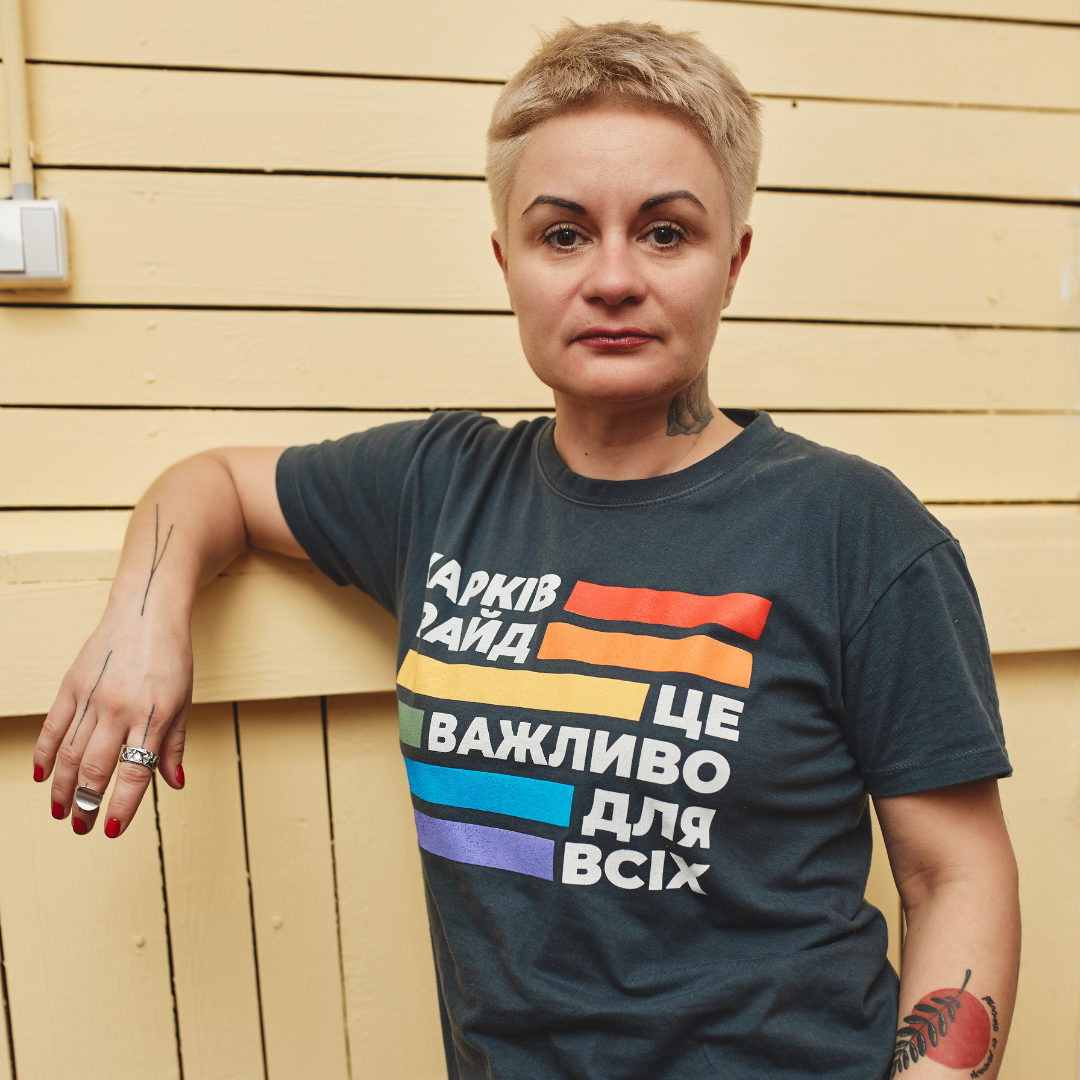
Throughout 2020, LGBTI activists have been harassed, intimidated and threatened by well-known far right groups in Ukraine, while police and local authorities turn a blind eye. Here is activist Anna Sharyhina’s alarming story, and how you can lend her and other LGBTI Ukrainian activists your support.
Two years ago, on New Year’s Eve, Anna Sharyhina gathered with friends and activists at the headquarters of Sphere, the LGBT organisation she cofounded and leads in the Ukrainian city of Kharkiv. At one point during the celebration Anna realised they were trapped. Thugs had padlocked the gate from outside. The group of friends feared the attackers would hurl smoke grenades in, as had occurred at PrideHub, Kharkiv’s LGBT+ friendly community centre. Little did Anna know that this would be the first of over 20 attacks she would both witness and suffer personally over the next two years.
Anna Sharyhina has been involved in LGBTI activism for over ten years and she is well-known in the community. This year she was part of organising the first ‘Pride on Wheels’ in Ukraine, a creative celebration of amid COVID-19 restrictions. Her active role in Kharkiv’s political, social and cultural life and her visibility in events and media, however, have come at a cost.
The police just stand by and watch
The façade of PrideHub, which is run by Anna and Sphere, has been covered with graffiti, featuring death threats and abusive language, and its windows have been shattered. Urine, feces, and blood have been smeared on its front door. At some events, groups of men have blocked the entrance locking their arms in a human chain. Activists and guests at the centre have been filmed and mocked online. Recently, a man handcuffed himself at the entrance, disrupting an activist event and barring participants from entering.
On this, as on other occasions, police officers passively stood by and watched. None of the complaints filed by LGBTI activists in Kharkiv have been followed up. Despite the evidence from the video surveillance system installed at PrideHub, no investigation has been carried out. By taking no action, police and local authorities are failing to protect citizens and their rights to freedom of association, assembly and expression, as well as ignoring Ukraine’s criminal code. Only at Pride celebrations, when the international community is watching, do the authorities provide actual protection.
Threats on her phone
The group behind the attacks is the far-right Tradition and Order. It has been active in different cities in Ukraine and is known for its use of violence and intimidation against those fighting for equality, gender diversity and women’s rights.
LGBTI organisations have been documenting the rise of organised violence against LGBTI activists, organisations and events for several years, calling for LGBTI-inclusive hate crime legislation. Ukraine has an obligation under the EU-Ukraine Association Agreement to introduce hate crime legislation that includes sexual orientation and gender identity as protected grounds.
Anna says she feels as if they are trapped in a locked room with their abusers, and everyone is looking away. Along with the attacks on Sphere, she receives threats on her phone on a regular basis. Allies and partner organisations who have been involved in projects with her, have also been intimidated. For example, a long-time partner organisation, an educational centre that’s openly LGBTI-friendly, received a group of visitors who threatened them with violence unless they stop their cooperation with Sphere.
Much of the harassment and intimidation seems to be centered on Anna, and follows the path of the projects and collaborations that feature her. The pressure intensified after a course that she taught on the prevention of bullying in schools. Violent opponents come to her lectures and discussions, disrupting them. This is especially threatening for people who are new to activism or to the topics at hand.
Dealing with this situation and reacting to attacks in an atmosphere of impunity is taking a great personal toll on Anna, on her colleagues and on Sphere’s work. They see themselves in a swim or sink situation, where swimming is getting harder and harder.
Here is what you can do to support Anna and the LGBTI community in Kharkiv, Ukraine
In this worrying scenario, Anna and her team continue to believe in their mission and commitment to the LGBTI community in Kharkiv and elsewhere. But dealing with security in the absence of any law enforcement takes more and more resources. Activists should not have to do this alone. You can help them by:
Spreading the word. Share Anna’s and Sphere’s story and help them stay in the spotlight until the Ukrainian authorities take action to prevent harassment and violence. Visibility helps!
Speaking up. Are you part of a human rights organisation or an activist initiative? Issue a statement or write an article about Anna’s and Sphere’s case. Tell Ukrainian and international political representatives that the violence and harassment against Anna Sharyhina, other LGBTI activists and their allies in Kharkiv must stop.
The following contacts in Ukraine can make a difference. They can make sure that the threats and attacks against Anna and Sphere are properly addressed by the police. They can prevent further threats and violence by publicly condemning violence against LGBTI and other human rights defenders and sending a clear signal that it will not be tolerated.
Contact them with your statements, tag them in your posts, and tell them that it is time to take action:
- Liudmila Denisova, Human Rights Ombudsperson: https://www.facebook.com/denisovaombudsman/
- Igor Terekhov, Acting Mayor of Kharkiv: https://www.facebook.com/igor.terehov.kh
- Alyona Stryzhak, Head of the Kharkiv Patrol Police Department: https://www.facebook.com/alyona.stryzhak.9
- Andriy Rubel, Chief of the Main Directorate of the National Police: https://www.facebook.com/people/%D0%90%D0%BD%D0%B4%D1%80%D1%96%D0%B9-%D0%A0%D1%83%D0%B1%D0%B5%D0%BB%D1%8C/100059591866063
- Serhiy Knyazev, Adviser to the Minister of Interior: https://www.facebook.com/sergii.knyazev
- Arsen Avakov, Minister of the Interior: https://www.facebook.com/arsen.avakov.1
Odesa Pride attacked by Ukrainian nationalist group ‘Tradition and Order’
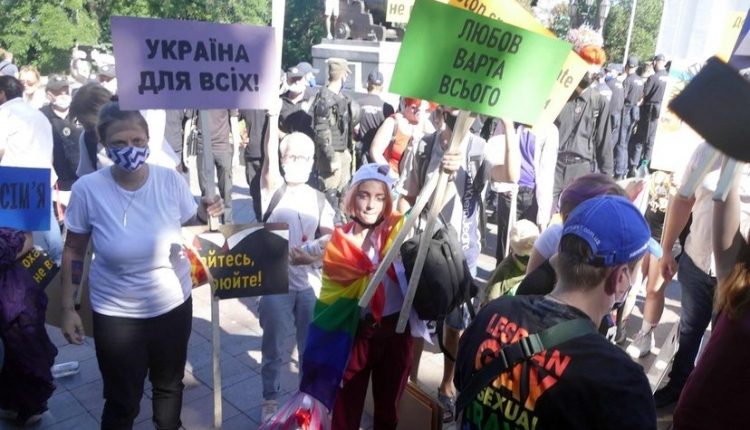
On the 30th of August, Odesa Pride tried to hold a peaceful gathering on one of the central streets of Odesa, Ukraine. Despite the fact that the group Tradition and Order were issuing threats before the event and came prepared to the gathering, where they acted violently, the authorities failed to prevent the attacks and ensure the freedom of assembly of the Odesa Pride participants.
The municipal and police authorities had been informed of the event well in advance and they had been specifically requested to protect the members of Odesa Pride against foreseeable protests by nationalist group. The nationalist group Tradition and Order issued several threats against the event and declared a counter demonstration. Ukrainian local authorities thus knew the risks surrounding the event, and they had been asked to provide heightened protection to participants of Odesa Pride. However, only a limited number of police officers were initially deployed and they allowed the aggression of Tradition and Order to develop into physical violence against participants of the Pride. Several participants were pepper-sprayed and attacked with corrosive substances: one person received 1st degree burns, another person received severe head injuries.
Ukraine, as a signatory of international and regional human rights treaties, member of the Council of Europe and under the Partnership and Cooperation Agreement with the European Union and under own Constitution, has an obligation to protect participants of peaceful demonstrations and prevent any attempts to unlawfully disrupt or inhibit the effective enjoyment of right to freedom of expression and peaceful assembly of all people, including LGBTI people.
Given the fact that hate crimes against LGBTI people are investigated ineffectively, offenders often avoid responsibility or charged with petty crimes and motives of intolerance on grounds of sexual orientation, gender identity, gender expression and sex characteristics are often ignored in Ukraine, ILGA-Europe are concerned that the Ukrainian authorities will fail to conduct a proper investigation of Odesa Pride attacks and inadequate response of the police to the event as they failed to investigate attacks of Pride events and failure of police to protect the events in previous years.
ILGA-Europe calls on the European Union and Council of Europe to hold the Ukrainian authorities accountable to the human rights obligations they have committed to as part of the EU-Ukraine Association Agreement and member of the Council of Europe.
ILGA-Europe calls on the EU and Council of Europe to:
- Remind Ukraine of its obligations and duties under domestic law and international human rights law to respect, guarantee, protect and fulfil fundamental rights without discrimination
- Urge Ukraine to conduct a proper investigation of allegations of victims of attacks during the Odesa Pride and launch a comprehensive and meaningful inquiry into the circumstances and bring all perpetrators of hate crimes to justice and ensure effective remedy for victims, including compensation.
- Ensure non-repetition of such incidents and urge the respective authorities to provide well-trained, efficient and sufficient police protection to human rights defenders and Pride attendees, so as to ensure that their respect to peaceful assembly can be effectively enjoyed
- Urge Ukraine to adopt legislation on hate crimes that is motivated by sexual orientation, gender identity, gender expression and sex characteristics or other minority status;
Background information
Preparation
In August, Odesa Pride organisers – Gay Alliance Odesa – held several preparatory meetings with the police to consult them on safety of the event. During these consultations, the police was provided with a final list of all events to be held during the Odesa Pride: format, location, time, and degree of openness. Police suggested live chain format to ensure safety of members of the event and suggested location for the event. Pride organisers agreed to all suggestions of the police.
On August 20, after consultation with the police, the EUAM and a representative of the Ombudsman Institute, organiser sent official notification to the City Hall and the police that Odesa Pride will held on August 29, 2020. At the same day, police contacted organisers and suggested to reschedule the event on August 30 and this proposal was supported by the Gay Alliance Odesa.
On August 25, organisers met with contact persons from the Dialogue Police, the Department of Preventive Work and Street Activities, as well as representatives of the EUAM at the chose location for the Odesa Pride. At the meeting, organisers informed police about threats by nationalist group – Tradition and Order. Police informed organisers that they are aware of threats and monitoring the situation.
On August 28, organisers held final consultation with police. Threats, provocations, possible disruptions and strategies of counter actions were discussed during the meeting. Police informed organisers that they are still monitoring the situation and contacted counter demonstrators and received assurance from organisers of the counter demonstration that no attacks are planned.
Odesa Pride and attacks
In the morning of August 30, around 11.00 a.m., prior to the start of the Odesa Pride, organisers called police to confirm location and safety of the situation. Upon arrival, around 14.00, Odesa Pride organisers found out that agreed location was occupied by counter demonstrators – Traditional and Order. Police had made no attempts to vacate the agreed location for the event. Police insisted on relocation of the Odesa Pride as agreed location was occupied by Tradition and Order.
At 14:40, after negotiations between police and organisers of the Odesa Pride, Odesa Pride was relocated to Dumskaya Square to ensure safety of all participants of the Pride event. After 15 minutes, counter demonstrators followed the Pride participants to Dumskaya Square. Police did not make any attempts to draw live chain between the parties despite aggression and threats of counter demonstrators.
After 10 minutes of counter demonstrators’ arrival, they started attacking participants of the Odesa Pride and police failed to react to these attacks: no arrests were made. After first wave of attacks, police surrounded participants of the Odesa Pride to shield them from attacks but some participants were left outside of the circle and continued being under attack of counter demonstrators.
In next 10 minutes, Tradition and Order members attacked the police. Police began to react to the surrounding events and clashes broke out between Tradition and Order and police, during which one police officer was seriously injured. Police started arresting some members of Tradition and Order.
During next 1.5 hour, a group of about 30 activists surrounded by police were continuously attacked by counter demonstrators: pepper spray, blows with sticks, bottles and other objects (paint, eggs, stones, sticks, water bottles) had been thrown at them by members of Tradition and Order. These attacks were accompanied by insults and threats of violence and murder.
After 1.5 hours, participants of the Odesa Pride were securely removed from the Dumskaya Square by the police.
P. v. Ukraine

Intersex (Legal gender recognition)
(Application no. 40296/16), 14 November 2017
Find Court’s communication here.
Find Court’s decision here. (non-exhaustion of domestic remedies)
- The applicant, an intersex person, was registered as male, but identifying herself as female. She complains of the absence of any procedure in Ukraine for changing gender and name records for intersex persons.
- ILGA-Europe together with OII Europe submitted the following:
- There is lack of awareness about intersex people in Ukraine and the issues they face in their everyday lives. This results in a lack of non-pathologising information on intersex and lack of administrative procedures to reflect the person’s gender identity which may be wrongfully assigned after birth. As a result, intersex people are wrongfully precluded from name change and legal recognition procedures that are available to trans people.
- According to the ECtHR, imposing a restriction on one’s right to bear or change a name without justified and relevant reasons is incompatible with the purpose of Article 8, which is to protect individuals’ self-determination and personal development. Therefore, restrictions on name change should be analysed very critically and even more so where they are seeking to prevent conformation with an individual’s gender identity.
- International and European bodies have emphasized the need for quick, transparent and accessible legal gender recognition and name change procedures based on the principle of self-determination. There is a growing international consensus at the national, European and international level of the need to recognise and protect their rights.